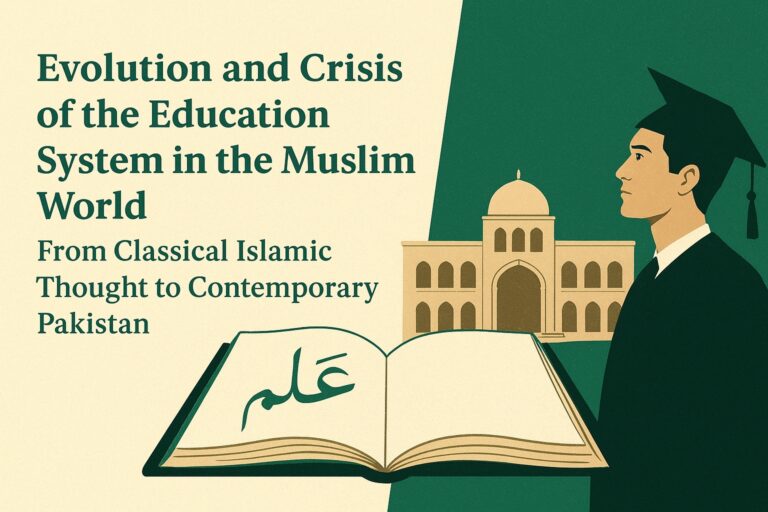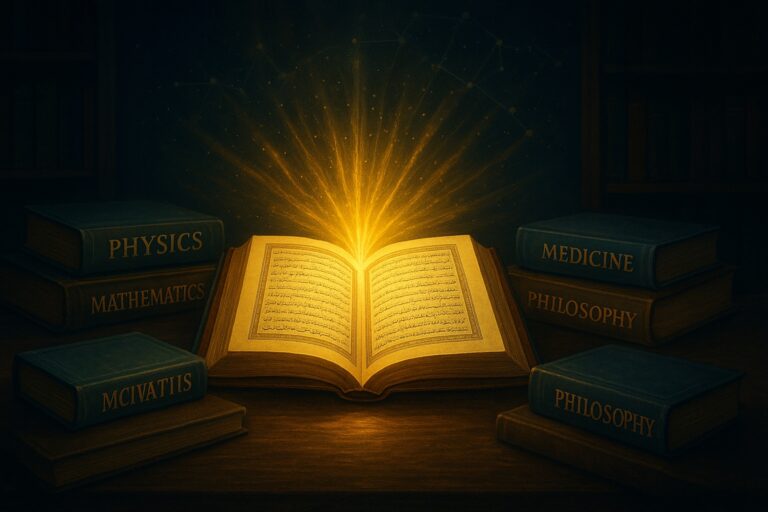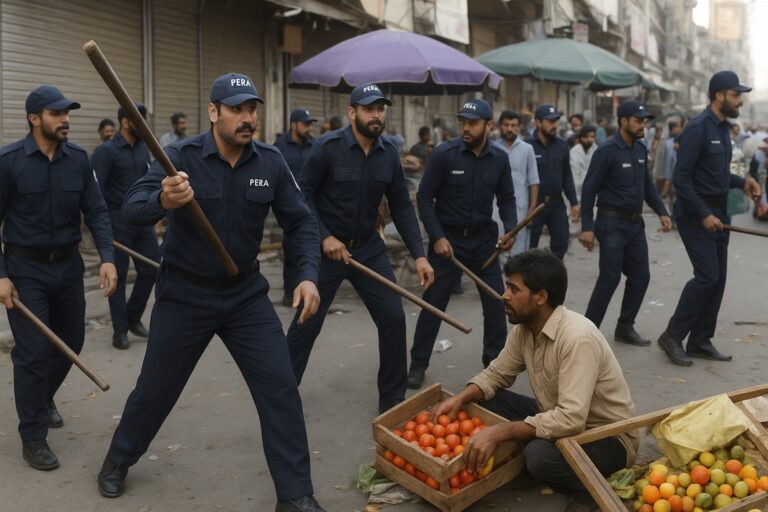✦ The Straight Path: The Human Journey From Meaning to Habit
There are moments in history when humanity pauses—bewildered, breathless—trying to rediscover a moral compass it once held naturally. Every age has its disorientations, but ours is unique in its speed. Everything moves—nations, markets, technologies—except the heart, which quietly waits for meaning. And meaning, though quiet, insists on being found.
The ancients believed that a man loses his way long before his footsteps turn astray. Wandering begins within. A thousand years of human experience echo the same truth: societies are reflections of their inner moral climate. What a man hides in his heart, a civilization eventually displays in its structures.
Somewhere within this universal drama lies a radiant concept—simple, complete, and timeless: Sirat-e-Mustaqeem, the Straight Path.
This path is not a line drawn across a map. It is a line drawn across the human soul.
1. The First Light: Purpose Before Path
Every journey begins with a question.
Before asking how to walk straight, one must ask why to walk at all.
Human beings are not accidental clusters of moving dust; they are creatures crafted with intention. Across scriptures, poetry, and philosophy, a single idea returns like a celestial refrain: you were created to respond to meaning.
In Islamic thought, this meaning is luminous and precise:
to recognize the truth of your Origin, to live responsibly within creation, and to contribute beauty, justice, and compassion to the world.
Purpose is not a doctrine to be memorized. It is a seed.
And like all living seeds, purpose must become movement.
2. The Unseen Curve: How Deviation Quietly Begins
Deviation does not thunder across a life. It tiptoes.
A man does not become unjust in a day. A nation does not fall in a year. Erosion begins silently—through unattended desires, unexamined habits, unchallenged impulses. A misalignment barely noticeable in the heart becomes visible later in the choices, then in relationships, then in institutions, and finally across the fabric of society.
Deviation spreads outward, like concentric ripples:
Self → Character → Family → Community → Institutions → Nation → World
When human beings forget who they are, societies forget what they stand for.
3. The Return: A Chain, Not a Leap
Realignment with the Straight Path is not the sound of repentance; it is the rhythm of renewal. One returns the way one lost his way—step by step, circle by circle.
a. Return to the Self
The first frontier is always inward.
A man sits with his intentions—the silent architects of destiny. He asks one question with painful honesty: What has become of me?
This is where the Straight Path begins—not with sermons or systems, but with sincerity.
b. Reawaken the Moral Compass
Once purpose touches the heart, the fog begins to lift. Truth regains its shine. Justice reclaims its throne. Restraint becomes strength. Compassion softens iron hearts.
Morality ceases to be a checklist; it becomes a fragrance.
c. Let Values Flow Into Social Roles
No one lives in pure solitude. Every human being carries worlds within his circle: a child influenced, a colleague encouraged, a friend uplifted, a stranger silently served.
When the heart changes, the household feels it.
When households change, societies breathe again.
d. Institutions Reflect Their Builders
The most sophisticated system collapses if its caretakers are morally weak. Likewise, even simple systems flourish when guided by honest, disciplined, compassionate souls.
Integrity is not a rule for institutions; it is the bloodstream of institutions.
e. Nations Rise on Justice
A nation is a moral ecosystem.
Laws, courts, markets, and administrations mirror the people who run them.
Justice is the backbone of civilization—not wealth, not armies.
f. The Global Human Family
Only when individuals and nations stand upright can they meaningfully lift humanity. Peace cannot be negotiated by those at war with themselves.
The Straight Path, therefore, is not a private journey. It is the quiet force that underwrites civilization.
4. A Gentle Question for the Modern World: Where Is the Soul?
This brings us to the global stage—not abruptly, not critically, but naturally.
The modern world has attempted to articulate shared aspirations through bodies like the United Nations. The Sustainable Development Goals (SDGs) are, at their core, an acknowledgement that humanity must walk together: eliminating hunger, promoting education, ending inequality, protecting the Earth.
These goals honor human need. But a quiet question lingers:
Can human welfare be complete without care for the human soul?
One can feed a man, but how will he treat others?
One can educate a child, but what moral compass will guide her decisions?
One can build institutions, but what conscience will animate them?
Spiritual and ethical integrity are not luxuries; they are prerequisites for sustainable human progress.
Expecting the UNO to formally embrace spiritual-moral development may be ambitious. Bureaucracies, by nature, move cautiously. But the question remains valid and urgent:
If humanity has a roadmap for outer development, why is there no roadmap for inner development?
Why is there no shared language of virtue, responsibility, dignity, and conscience?
Sirat-e-Mustaqeem is not merely an Islamic idea.
It is a universal human necessity: the need for inner alignment.
No global blueprint can succeed if human beings themselves remain fractured within.
5. Completing the Circle: Purpose Into Habit
The highest ideals collapse if they never touch the ground.
A man cannot build just institutions if he lies in conversation.
He cannot heal nations if he wounds people with his words.
He cannot establish peace in the world if he cannot establish peace in his heart.
Civilization begins with habits:
-
Honesty in small things
-
Simplicity in lifestyle
-
Punctuality in action
-
Kindness in speech
-
Responsibility at work
-
Justice in dealings
-
Purity in intentions
-
Gratitude in the everyday
These are the tiny bricks from which the architecture of the Straight Path is built.
Grand reforms collapse when small habits are ignored.
Small reforms blossom when small habits are honored.
Thus the journey completes itself.
From purpose to thought.
From thought to action.
From action to habit.
From habit to character.
From character to culture.
From culture to civilization.
This is the secret — the Straight Path is not a road.
It is a transformation.
Conclusion: The Long Journey Home
Every human being carries a secret geography within — a compass pointing toward the One who created him. The world becomes incoherent when the heart loses that direction. The return is not dramatic; it is deliberate. Not loud; but luminous.
The Straight Path is the journey of becoming whole again — in the self, the home, the community, the nation, and the world.
It is the journey of taking one quiet, steady, conscious step… homeward.



